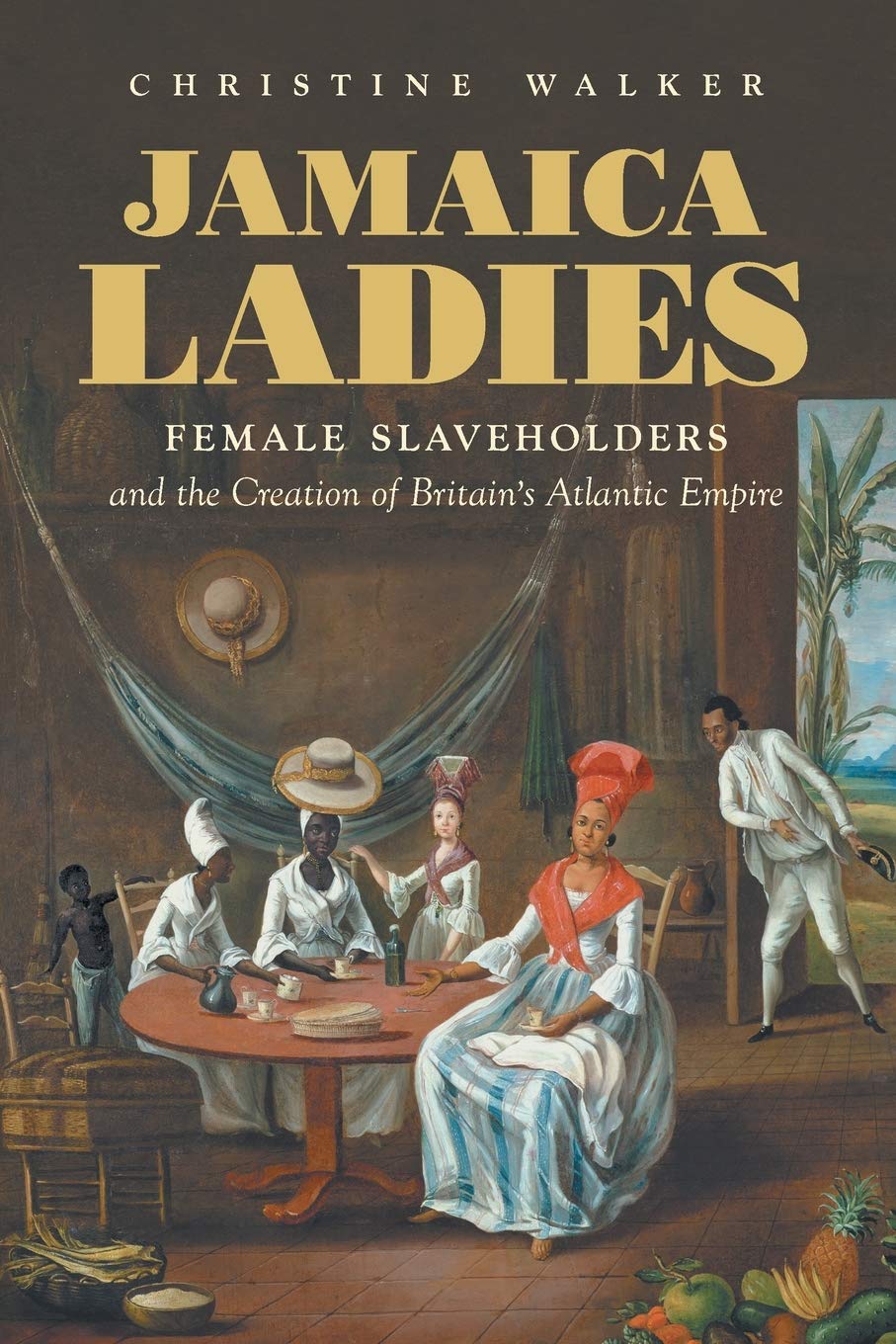
Jamaica Ladies: Female Slaveholders and the Creation of Britain's Atlantic Empire (Published by the Omohundro Institute of Early American History and ... and the University of North Carolina Press)
FREE Shipping
Jamaica Ladies: Female Slaveholders and the Creation of Britain's Atlantic Empire (Published by the Omohundro Institute of Early American History and ... and the University of North Carolina Press)
- Brand: Unbranded

Jamaica Ladies: Female Slaveholders and the Creation of Britain's Atlantic Empire (Published by the Omohundro Institute of Early American History and ... and the University of North Carolina Press)
- Brand: Unbranded
| RRP: | |
| Price: |
Description
For librarians and administrators, your personal account also provides access to institutional account management. But as Christine Walker's tightly argued and lucidly written book makes clear, women like Hassall were hardly unique among the first few generations of settler colonists in British Jamaica, and they contributed more to the construction of that society's.
There have been bumps on the road, however, and in 2010 the women’s programme as well as the women’s Olympic programme were disbanded by the Jamaica Football Federation (JFF). Female colonists employed slaveholding as a means of advancing themselves socially and financially on the island.In July 2022, Jamaica qualified for their 2nd World Cup, which is a historic feat, considering its men's counterparts have been unable to do the same. While some contemporary voices might have criticized Hassell, Shanks, and Eldridge for deviating from metropolitan gender norms, Walker powerfully argues that in Jamaica their managerial skill and status as free slaveholders eclipsed their gender and enabled them to take part in establishing and maintaining “the most productive and exploitive agricultural economy in the British Empire” (p. The book ends with the tale of Mary Rose, another free woman of color, driving a small carriage through the streets of Jamaica’s seat of government, Spanish Town, during the 1750s. Doddington exploited the labor of enslaved Africans to raise her status in the community, increase her economic standing, and cement her position as a free woman, but she also undermined the practice of slavery through the conditional manumission of her captives on her death. Jamaica Ladies is an outstanding study of gender and power in early British Jamaica, original and frequently startling in its evidence and arguments.
The 6ft striker’s physicality and speed of thought had set her up for a dazzling career from a young age – aged 14 she played for Jamaica’s under-15, under-17 and under-20 teams.She states, "The town's growth and stability depended as much on the women who remained ashore as it did on the men who climbed aboard ships and ventured out to sea" (72). In 2010, due to lack of funding, the Jamaica Football Federation (JFF) cut the senior women’s program as well as the women’s Olympic program. The FGSJ offers financial support to projects for the conservation and restoration of historic buildings, and seeks to stimulate an interest in and an appreciation of the value of Jamaica’s heritage.
Please include what you were doing when this page came up and the Cloudflare Ray ID found at the bottom of this page. If you do not have a society account or have forgotten your username or password, please contact your society. Don't miss out on the latest kit releases and limited-edition gear and collectibles available exclusively on our site. In particular, Walker examines the critical early period in Jamaican colonization that changed the island into a wealthy colony in the growing British Empire. While many women served in taverns, washed and mended clothes, or provided sexual services, some became merchants and property owners, which include enslaving people.
In 2008, the team was disbanded after it failed to get out of the group stage of Olympic Qualifying, which notably featured the United States and Mexico. All our frames and canvas stretcher bars are created from a solid piece of pine sourced from sustainable European forests. Weaving family dynamics into the warp and weft of British Caribbean society and economy, Walker argues that not only did unmarried or widowed women own enslaved women and men, but also families were at the center of Jamaica’s slave society. From these she reconstructs complicated lives of women of position and prestige, and how they came to hold property that was once the exclusive domain of men. Walker’s main argument is that women played a leading role in Jamaica’s dramatic rise by helping to ensure that colonial properties passed to the next generation as viable concerns and by devising and supporting strategies that shored up the inherently volatile and contested institution of slavery.
- Fruugo ID: 258392218-563234582
- EAN: 764486781913
-
Sold by: Fruugo
